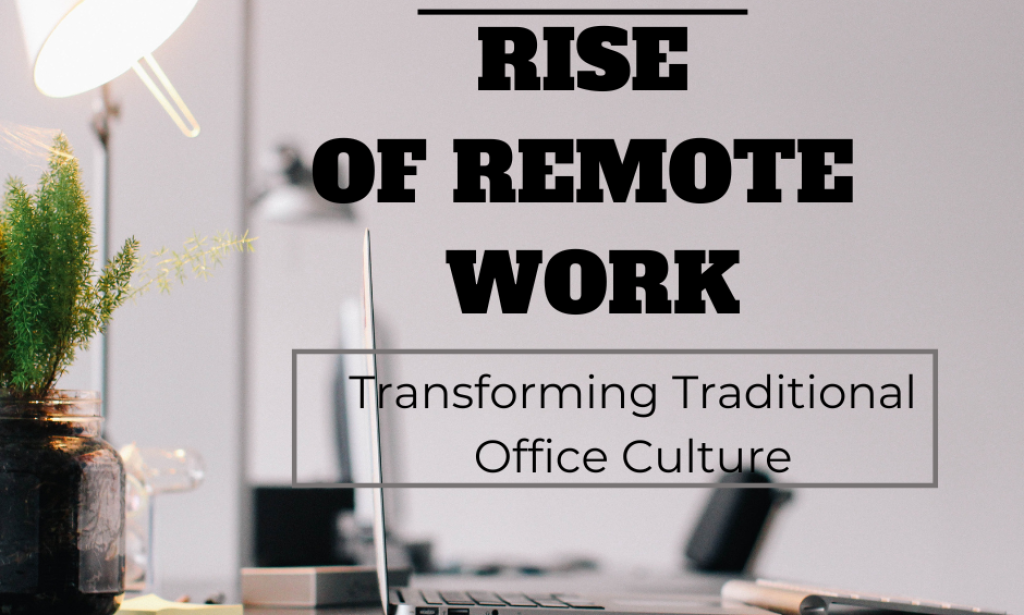The Rise of Remote Work: Transforming Traditional Office Culture
Introduction
In recent years, a significant transformation has been underway in the realm of work. The traditional nine-to-five office routine is no longer the norm for many professionals. Instead, remote work has emerged as a vaible and increasingly popular a;lternative. the siesmic shift is not merely a response to global events but represent as a fundamental restructuring of how we percieve work and productivity. In this article, we delve into the phenomenon of remote work, exploring its rise, its impact on traditional office culture, and its implications for the future of work.
The Emergence of Remote Work
Remote work, once viewed as a luxury reserved for a select few, has now become mainstream. Enabled by advances in technology, the internet, and communication tools, remote work allows individuals to perform their jobs duties virtualy anywhere. whether its working from Home, a co-working space, or a coffee shop, employees now have flexibility to structure their work environement to suit their preferences and lifestyle.
Impact on Traditional Office Culture
The advent of remote work has direupted traditional office cuture in profound ways. The Physical office, once the epicenter of prefoessionals life, has now been reimagined as just one of manu possible workspace. With remote work, the rigid constraints of trditional office are giving way to a more fluid and adaptable approach to work.
Challenges and Benifits
Remote work presents both challenges and benefits for employees and employees alike. On one hand, the lack of face-to-face interaction can lead to feelings of isolation and disconection, Additionally, managing remote teams requires a different set og skills and strategies to foster collaboration and maintain productivity. However, remote work also offers significant advantages, such as increased autonomy, flexibility, and the ability to trap into a global talent pool. For employees, it can lead to cost saving on office space and overhead expenses while improving employee satisfaction and retention.
Reshaping the Future of Work
As remote work continues to gain momentum, it is reshaping the future of work in profound ways. the traditional model of commuting to a centralized office five days a week id no longer the default option. Instead, we are witnessing a shift towards hybrid models of work, where employees have the flexibility to choose when and where they work based on their individual needs and preferences.
Conclusion:
The rise of remote work represents a paradigm shift in how we approach work and productivity. By breaking free from the confines of traditional work office. remote work offers the promise of a more flexible , adaptable, and inclusive work culture. While challenges remain the benifits of remote work is undeniable and its impact on traditional office culture is likely to endure long into the future. As we navigate this new landscape one thing is clear remote work is here to stay, and its transformative power will continue to shape the way we work for years to come.

You must be logged in to post a comment.